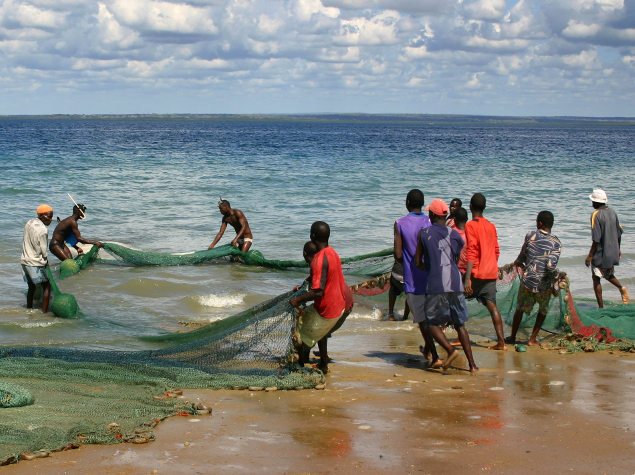Marine ecosystems:
Fondation Ensemble has published two new reviews
on Mozambique and Peru
Funded through a partnership with Oak Foundation, these two studies analyze and review our current knowledge of marine ecosystems in the two countries, incorporating all environmental, social, political and economic dimensions.
Beaches with parabolic dunes, priceless coral reefs, many varieties of mangrove, numerous endemic plant and animal species … Mozambique and Peru are among the world’s biodiversity hotspots.… 10 000 species of fish live in Peru’s territorial waters, and 59 areas of high conservation value have been identified along its coast. As for Mozambique, it has 122 species of sharks and rays, 400 species of mollusks, 27 species of marine mammals, 270 species of coral and 5 species of sea turtles. But for how long?
The marine ecosystems in these two countries are facing different types of threats:
- Demographic explosion, which leads to the problem of waste water discharges in coastal areas.
- Industrial development along the coastline and river banks: fish processing plants, extraction of raw materials in coastal areas, offshore oil and gas operations, port constructions and activities, industrial discharges, etc.
- Overexploitation of natural resources: mangrove deforestation related to the expansion of farming areas, coral harvesting, water course diversion and hydroelectric dams, use of chemical inputs in farming, overfishing.
- Unregulated tourism.
- Climate change and invasive species.
Possible approaches for moving forward…
In both countries, the number of protected areas is undeniably increasing. The last ten years have seen policies for marine protected areas being implemented and developed. Laws and regulations are also evolving in favor of conservation of marine ecosystems. But how can we take a broader approach to addressing the closely related environmental and human issues involved?
Through a global approach:
- capable of developing a common vision, from the highest level – through international cooperation bodies – right down to the field, thereby making it easier to establish long-term intervention frameworks and encouraging greater technical cooperation and transparency of scientific data.
- involving all stakeholders: ministries, local authorities and communities, fishers, NGOs, scientific communities, universities, private sector, donors, bodies both large and small expanding the existing legal framework and coordinating on the ground.
And locally, on a case by case basis:
- by giving small-scale fishing – which continues to provide local communities with their main source of protein – the means to organize itself. By fostering entrepreneurship in the sector.
- by encouraging the establishment of new marine sanctuaries and the inclusion of new protected species. By scaling up human and technical resources: establishment of management procedures, monitoring of operations, more systematic checks and controls, new research programs, etc.
- by favoring a participatory approach that involves coastal populations at the very earliest stage of the process and jointly establishes with them a framework and guidelines for good practice.
To find out more…

